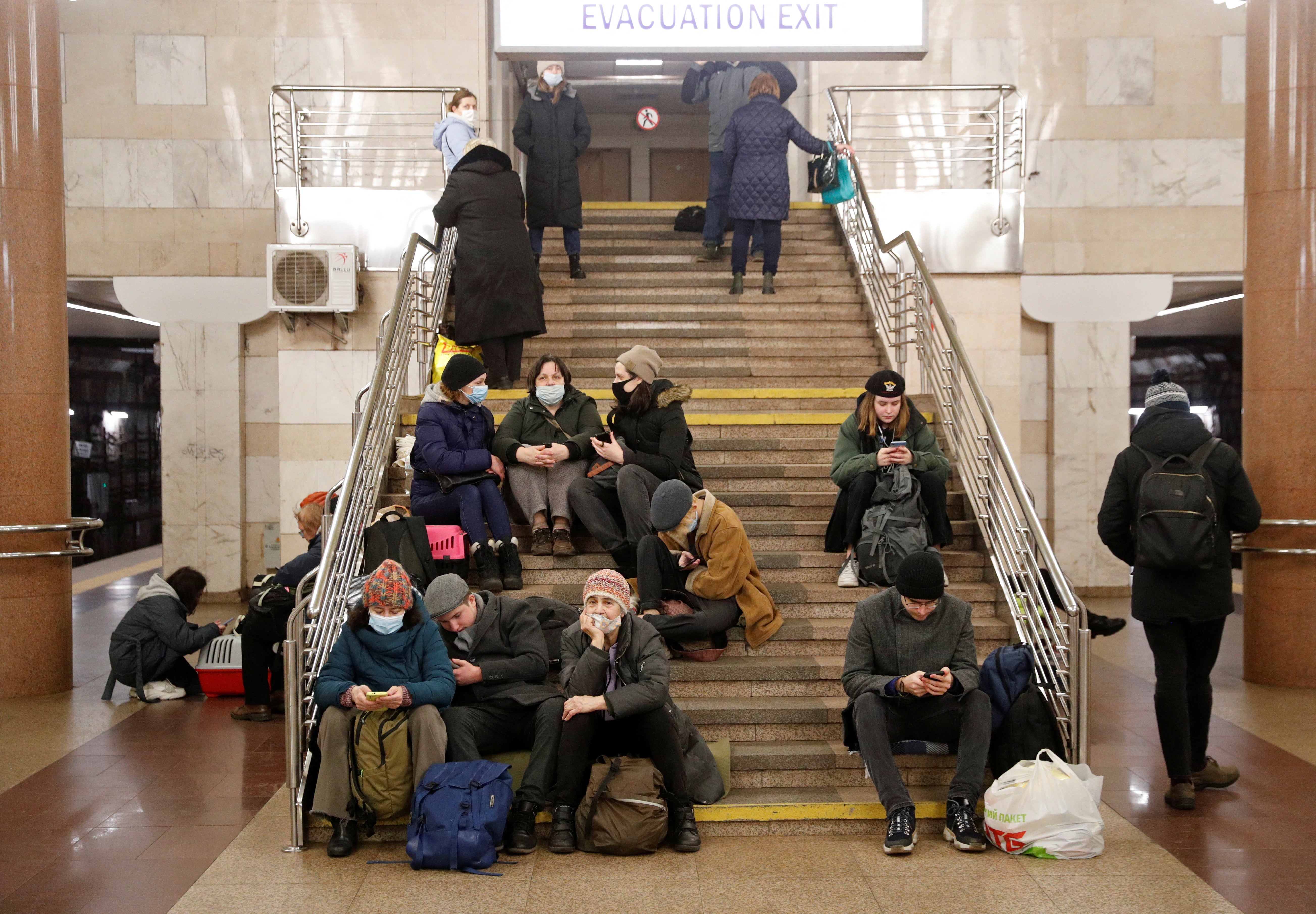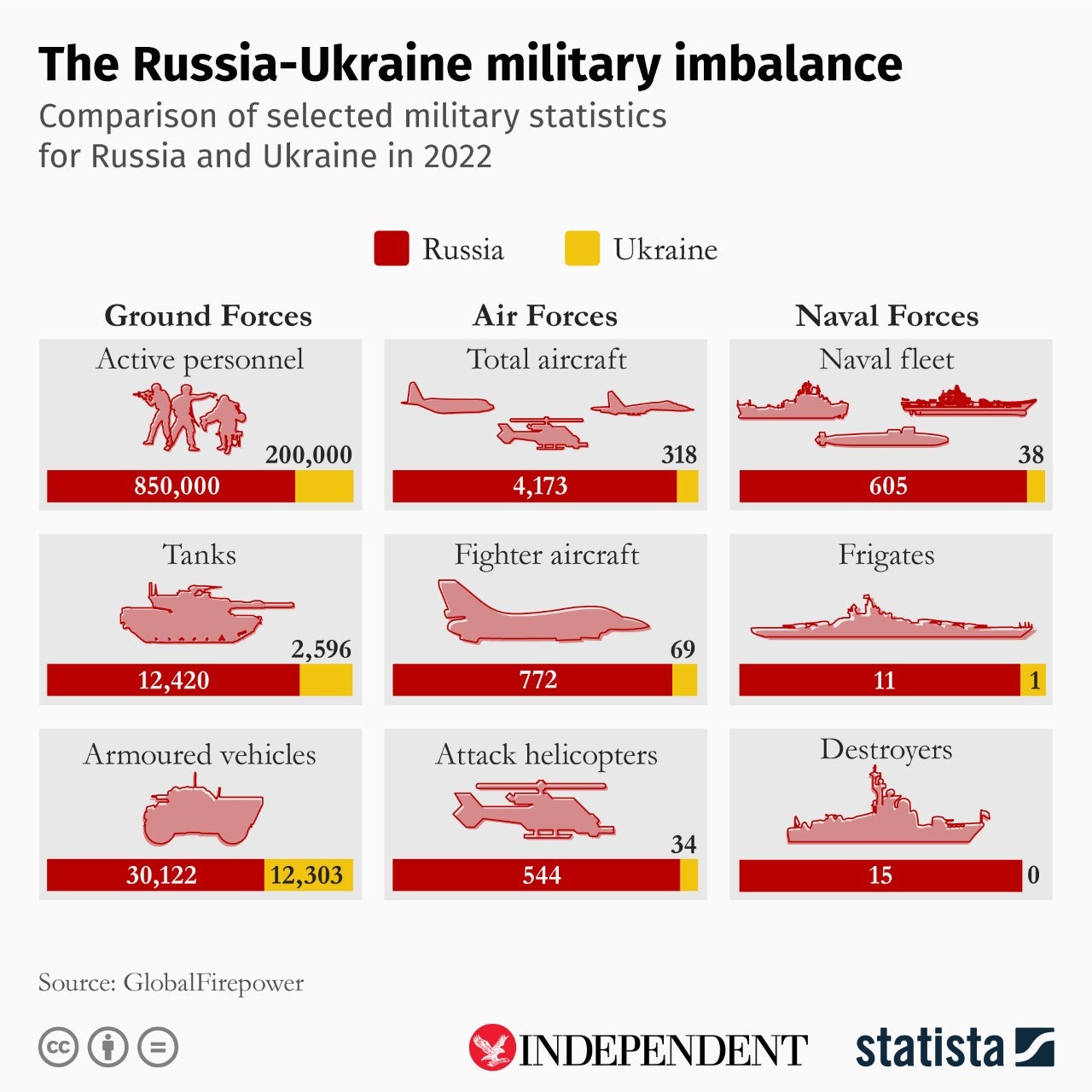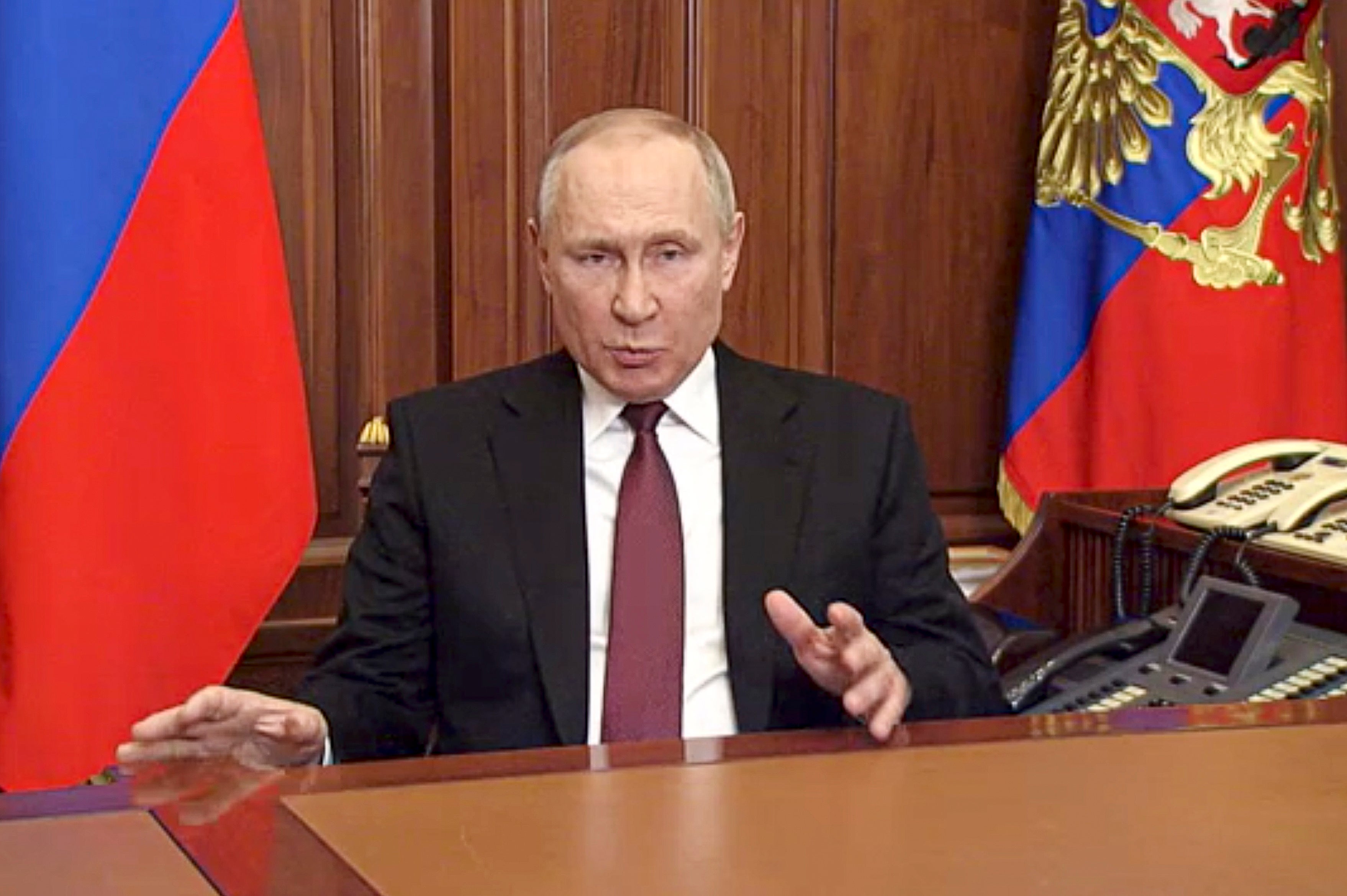Ukraine invasion: Explosions ring out across country as Putin declares war to ‘de-Nazify’ neighbour
With gunfire and blasts heard near Kiev’s international airport, sources say Russia may be moving to cut off the capital and force regime change
Your support helps us to tell the story
From reproductive rights to climate change to Big Tech, The Independent is on the ground when the story is developing. Whether it's investigating the financials of Elon Musk's pro-Trump PAC or producing our latest documentary, 'The A Word', which shines a light on the American women fighting for reproductive rights, we know how important it is to parse out the facts from the messaging.
At such a critical moment in US history, we need reporters on the ground. Your donation allows us to keep sending journalists to speak to both sides of the story.
The Independent is trusted by Americans across the entire political spectrum. And unlike many other quality news outlets, we choose not to lock Americans out of our reporting and analysis with paywalls. We believe quality journalism should be available to everyone, paid for by those who can afford it.
Your support makes all the difference.Vladimir Putin ordered the invasion of Ukraine in the early hours of Thursday morning after massing troops on the country’s borders for weeks, and warned the west not to interfere in the unfolding conflict.
Explosions were heard in the outskirts of the cities of Kharkiv, Kramatorsk, Mariupol as well as the capital Kiev soon after the Russian president announced the start of the war in a televised speech.
Mr Putin spoke of the launch of a “special military operation” in the east of the country where he had recognised the separatist “Peoples' Republics” of Donetsk and Luhansk “to defend people who have been victims of abuse and genocide from the Kiev regime".
The Russian president said he did not want to occupy Ukraine, but he intended to “de-Nazify” the state and demanded that the country’s armed forces lay down their weapons, saying that otherwise Kiev will be responsible for "possible bloodshed".
Mr Putin also cautioned against interference from other countries, warning them “if you do you will face consequences greater than any of you have faced in history”.
One possible Russian plan of action, according to a number of international diplomatic and defence sources, is to cut off the Ukrainian forces in the east of the country and threaten Kiev, demanding regime change – the resignation of President Volodymyr Zelensky.
Both of Kiev’s airports, Borispil and Zhulyana, as well as a military airfield in the outskirts of the capital have been hit by the missiles and drone strikes, according to Ukrainian officials; explosions nearer to the city centre suggest that a number of government buildings may also have been in the line of fire. Anti-aircraft fire was heard in all the locations.
Meanwhile, there are reports in the Ukrainian media that Russian marine infantry have landed in the Odessa and Mariupol in the Black Sea region and were attempting to take over both cities. An attack there, as well as in eastern Ukraine, would further isolate Kiev.
Ukraine’s interior ministry said the country’s northern border was under attack from Russian forces, with Belarusian support.
There were also reports of explosions in the western city of Lviv.
Ukraine’s military claimed to have shot down five Russian planes and a helicopter, while Moscow said it had had taken out military infrastructure at Ukraine’s air bases and “suppressed” its air defences.

Mr Zelensky said in a statement that missile strikes had taken place on his country’s infrastructure as well as Ukrainian forces, and introduced partial martial law.
He urged people to stay at home, but the roads out of Kiev began to be packed with cars soon after the air strikes began. People also sheltered in underground stations in the capital.
The first casualties were reported early on Thursday morning, with at least eight people killed and nine wounded by Russian shelling, said Ukraine.
Follow the latest updates in our live blog on the Ukraine crisis here
Hours before the military action began, the Ukrainian government brought in a series of emergency measures and asked Turkey to close the Black Sea straits to prevent Russia from launching naval assaults.
After a day of claiming that they were under intense Ukrainian attack, the "Peoples Republics" asked for military support from Moscow. Russian television channels, meanwhile, showed what they said were lists of people, Ukrainians and possibly foreigners, who were responsible for "war crimes" and would be brought to justice.

Before the attacks began, Mr Zelensky appeared on television saying that he wanted peace and urged the Russian people not to believe the narrative for war. He said: “You are being told that we hate Russian culture. How could we hate a culture, any culture?
“Ukraine in your news and Ukraine in reality — that’s two different countries. Many of you have been to Ukraine, many of you have relatives in Ukraine… Listen to us, hear us. The people of Ukraine want peace.”
According to reports, Mr Zelensky had tried to contact Mr Putin several times in the course of the evening, but the Russian President refused to take his call.
International condemnation was swift. US president Joe Biden condemned what he called an "unprovoked and unjustified attack by Russian military forces".

He said that "the prayers of the entire world are with the people of Ukraine. President Putin has chosen a premeditated war that will bring a catastrophic loss of life and human suffering”.
"Russia alone is responsible for the death and destruction this attack will bring, and the United States and its allies and partners will respond in a united and decisive way. The world will hold Russia accountable."
Germany’s Olaf Scholz called Russia’s actions “a blatant breach of international law”.

“It cannot be justified. Germany vehemently condemns this act of recklessness committed by President Putin. We stand in solidarity with Ukraine and its people,” he said.
British Prime Minister Boris Johnson said he was “appalled” by Russia’s actions.
The EU said it will unveil further sanctions, while countries in central and Eastern Europe warned of a potential refugee situation.
The Asian stock markets plunged in the immediate aftermath of the invasion and oil prices pushed past $100 (£74) a barrel.




Join our commenting forum
Join thought-provoking conversations, follow other Independent readers and see their replies
Comments